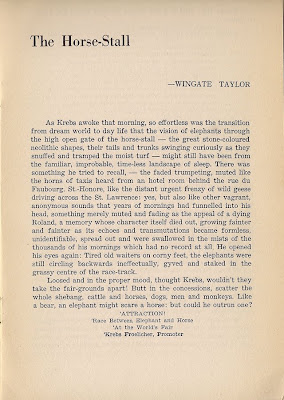
The Ottawa Citizen, 3 December 1960
McClelland and Stewart's Christmas offerings from half-a-century ago. Only This Side Jordan is in print today. Pity that, Robertson Davies' A Voice from the Attic is a particularly good match for a snowy winter's day. "A witty, robust and wonderfully opinionated book on the joys of reading and the author's own offbeat likes and dislikes." There is truth in advertising.
My recommendations for this season's gift-giving favours presses that are hard at work mining the neglected riches of our past.
First up, Véhicule, which this fall launched its Ricochet Books series of pulp fiction reprints. (Full disclosure: I'm consulting editor for the series.)
 The Crime on Cote des Neiges
The Crime on Cote des Neiges
David Montrose
The series debut, returning Montrose (Charles Ross Graham) to print after after an absence of more than four decades. Originally published in 1951, this edition includes a foreword by yours truly.
Two blondes, one brunette, a roadster and a whole lotta Dow. It doesn't get much better.
Murder Over Dorval
David Montrose
Foreword by Michael Blair
"In one hand she held a plane ticket to Montreal, in the other a wad of greenbacks. She was a gorgeous looking redhead. For the sake of her lovely green eyes, Russell Teed took the plane and the money. But it wasn't long before h realized that whatever she had offered, it wasn't worth it."
Recognition of Dundurn's Voyageur Classics series is long overdue. For four years now it's been "bringing forward time-tested writing about the Canadian experience in all its varieties." This year's titles:
Hugh Garner
Introduction by Paul Stuewe
Scott Symons
Introduction by Christopher Elson
Wyndham Lewis
Introduction by Allan Pero
Grey Owl
Edited and introduced by Michael Gnarowski
Note the handy links to the publishers' websites. Of course, all are also available from booksellers, whether online or not, but I'm not playing favourites.
















































